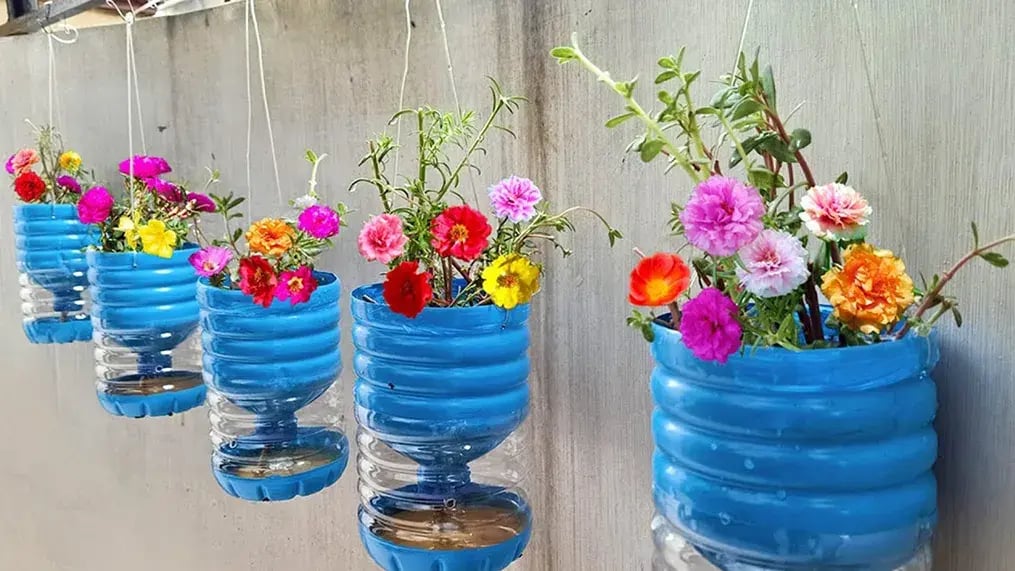- Set Gardening Goals Based On Environmental Impact
- Recycle Waste Products For Gardening Purposes
- Take Them On Hikes And Talk About It
- Incorporate Environmental Conservation Into Daily Life
- Make Art From Garden Waste
- Combine Science And Gardening
Introduction
Environmental conservation is a serious concern for most nations nowadays. From rising sea levels to changing climate patterns to increasing environmental pollution, the entire world is trying to be more careful about its carbon footprint and impact on nature. In such times of gravitas and seriousness, it is the upcoming generation that must take charge and change the narrative. And who are they but your budding children? If your child is too immersed in social media and modern technology with little concern for environmental upheavals and changes, now is the time to make the change. Involve them in gardening and create a slice of nature at home to savor and indulge in solace. Gardening can be done in all kinds of spaces and homes, from a small attic apartment to a spacious cottage with a backyard. All it requires is the initiative and perseverance against all odds. Here are some guidelines on gardening in urban spaces,
- Try vertical gardening. It is an easy way of utilizing vertical space of all kinds in urban flats, from using shelves, hangers, wires, and hanging pots, to wall installations, to grow plants.
- Keep climate and availability of lighting in mind while choosing plants. Often, plants dry up and die when the wrong kind is chosen for the house, simply because they are pretty or useful. Plant herbs, fruits, and flowers keeping your work and kid’s studying engagements in mind as well, to not end up forgetting to water them.
- Do not be casual when choosing soil. It is ideal to use nutrient-enriched or naturally fertile soil for your potted plants as it helps keep them healthy and blooming.
But how to teach kids about environmental conservation through gardening? By following the solid tips mentioned below.
Tips To Teach Kids About Environmental Conservation Through Gardening
1. Set Gardening Goals Based On Environmental Impact
Teaching kids about environmental threats and conservation is ideal by assigning them mini-gardening goals weekly. For example, your child’s goal for this week can be planting twenty new saplings and ensuring at least half of them sprout and thrive by next week. Such small yet achievable goals will improve their love for nature and help them boost the atmosphere's oxygen content in their own way.
2. Recycle Waste Products For Gardening Purposes

Use waste products like empty egg cartons and shells or empty cardboard containers for various gardening ventures. They act as great, eco-friendly flowerpots for herbs and saplings while being space friendly as well. It is important to explain to kids the reason behind every such conservative action.
3. Take Them On Hikes And Talk About It
Instead of sitting in a cool, air-conditioned room, take your kids out on hiking, camping, and walking trails. Inform them and talk to them about global environmental concerns, take their input seriously, and gently debate about healthy conservation methods to increase their curiosity, attraction, and inspiration for pursuing the topic in real life.
4. Incorporate Environmental Conservation Into Daily Life
It is ideal to lead by example in such cases. Try incorporating environmental conservation into your real life, daily actions, and activities as well. Try commuting to work and getting a few of your child’s friends to carpool to school with them or composting at home and reducing plastic waste in your household. Such real-life actions have positive impacts on nature while nurturing your kid to follow the same.
5. Make Art From Garden Waste

Delight your kids by introducing them to a brand-new medium of art. Use various waste products from the garden to make art, like spare branches, old leaves, dried flowers, and so on. This venture will not only be environmentally friendly and beautiful but also become your kid’s next favorite leisure activity, engaging all their senses, and soothing their minds.
6. Combine Science And Gardening
Do fun science projects with your kid, to hone their scientific and rational side, while engaging in gardening and nature-oriented projects. Create terrariums and insect hotels together, bake simple cakes in a solar-powered oven, or make charts and 3D models together with your kids to enhance their sense of achievement and strengthen their awareness about environmental happenings and efforts for conservation.
Conclusion

Gardening is a wonderful hobby to engage in daily, as it also has many health benefits to offer kids, from improving their mood and cognitive health to improving their vitamin D levels out in the sun. But it can be a great tool to awaken kids to environmental concerns and conservation efforts. It will be their planet to care for, cherish, and use autonomously in the upcoming decades, so they better start preparing early. Also, gardening helps intersperse this preparation with some much-needed doses of empathy, responsibility, and kindness. So, follow this guide to teach your kids about environmental conservation through gardening and further fortify their future.
Kaushiki Gangully is a content writing specialist with a passion for children's nutrition, education, and well-being. With more than five years of writing experience and a science-based background, she provides nuanced insights to help families raise happy, healthy kids. Kaushiki believes in making learning and healthy eating fun, empowering parents with practical, easy advice.
The views expressed are that of the expert alone.
The information provided in this content is for informational purposes only and should not be considered a substitute for professional medical advice, diagnosis, or treatment. Always seek the advice of your physician or another qualified healthcare provider before making any significant changes to your diet, exercise, or medication routines.










